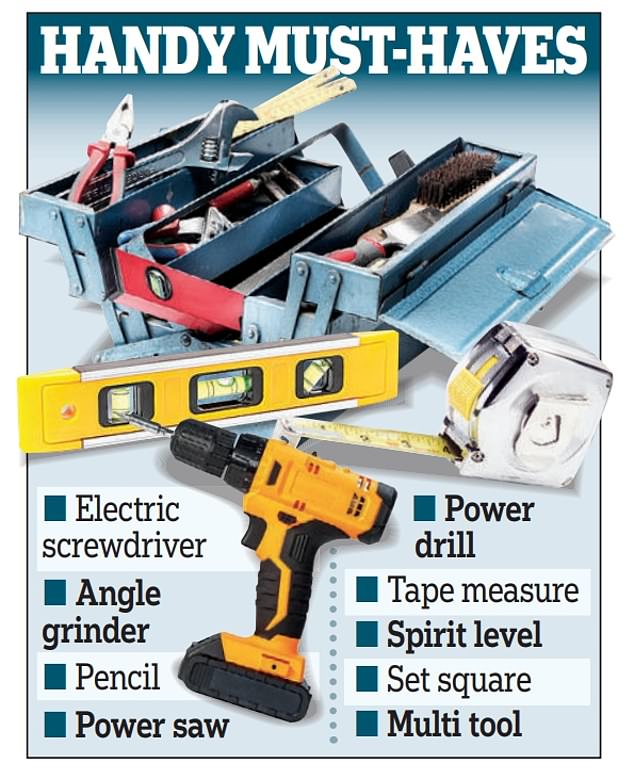If you want something done right, do it yourself, as the saying goes.
But when it comes to maintenance around the home a significant number of us are botching DIY jobs by using the wrong tools – including swapping hammers for rolling pins.
A survey found four in ten people under the age of 40 do not own a toolbox, while three quarters (74 per cent) admit that they regularly attempt projects without the proper equipment – often costing them thousands of pounds in the process.
A further 65 per cent have used an object from around the home to try to get the job done.
Some 72 per cent of respondents have had at least five DIY disasters in the last year, with the average cost per disaster coming in at £1,555 – totalling a whopping £7,775 a year.
And half (51 per cent) admitted to having to call out a professional tradesman to fix the problem as a result of their DIY bungles.
The research found 71 per cent have used a kitchen knife as a screwdriver, while 63 per cent frequently use scissors to trim plants and hedges.
Credit cards to spread grout (40 per cent), kitchen bowls to mix wallpaper paste (37 per cent) and Sellotape to fix leaking pipes (36 per cent) also emerged among the most commonly used wrong tools for jobs.


Rolling pins (pictured in stock photo) were one of the items reported to have been used in DIY tasks
Other appropriated household items include broomsticks to clear gutters (33 per cent), Tupperware dishes to mix filler (32 per cent), rolling pins as hammers (31 per cent) and spoons to dig out weeds (31 per cent).
And two thirds (66 per cent) have even tried to guess if a shelf or picture is level using just their eye, rather than a proper spirit level, with 72 per cent adamant that it was straight despite missing the right tools.
One in four (23 per cent) say they are ‘rubbish’ and ‘terrible’ at DIY, with 13 per cent admitting they end up watching internet tutorials when they want to learn how to do something.
It is no surprise that as a result, three quarters (74 per cent) were put off from DIY altogether.
Rebecca Leversidge from insurance company Premierline, which commissioned the research, said: ‘While innovation and initiative in the home is admirable, DIY is often a risky substitute for calling in a professional who will have the right skills and tools for the job – especially when it comes at an average cost of £1,555 per fix.’
According to the 500 tradesmen interviewed as part of the survey, 43 per cent have noticed a decline in DIY skills in recent years and 30 per cent felt there has been a significant drop.
One in ten say they are being called out at least once a week to fix botched jobs, with poorly fitted shelves and cabinets (40 per cent), electrical wiring issues (37 per cent), burst pipes (35 per cent), damaged walls (31 per cent) and poor paintwork and wallpapering (26 per cent) being the main problems.
But that does not stop us, despite 10 per cent worrying about doing a bad job and 7 per cent panicking about damaging their property.
The professionals have come up with a list of must-haves for the home toolbox, including a tape measure, spirit level and power drill.












